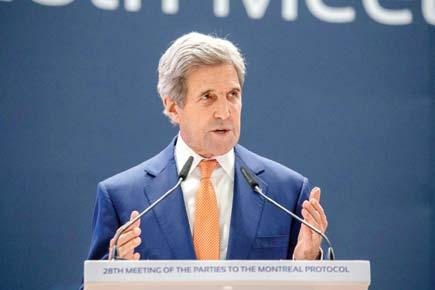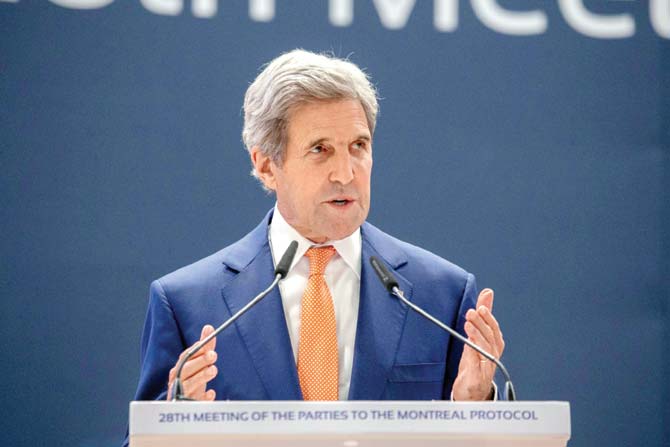In a landmark step to combat climate change, about 200 nations, including India, on Saturday struck a legally-binding deal after intense negotiations to phase down climate-damaging HFCs that have global warming potential thousand times more than carbon dioxide


US Secretary of State John Kerry gestures as he delivers a speech during the 28th Meeting of the Parties to the Montreal Protocol in Kigali, on Friday. Pic/AFP
ADVERTISEMENT
Kigali: In a landmark step to combat climate change, about 200 nations, including India, on Saturday struck a legally-binding deal after intense negotiations to phase down climate-damaging HFCs that have global warming potential thousand times more than carbon dioxide.
Negotiators and policymakers held meetings since Friday morning and through the night, having intense deliberations to iron out differences concerning the amendment to the Montreal Protocol to reach the Kigali Amendment to phase down the use of hydrofluorocarbons (HFCs).
The agreement reached by 197 parties on the amendment to the Montreal Protocol on Substances that Deplete the Ozone Layer is expected to prevent a global temperature rise of up to 0.5°C by the end of the century, while continuing to protect the ozone layer.
According to the amendment adopted by nations, developed countries will reduce HFCs use first, followed by China along with a large number of countries.
The Amendment will enter into force on January 1, 2019, provided that at least 20 instruments of ratification, approvals of the Amendment have been deposited by regional economic integration organisations that are party to the Montreal Protocol.
 Subscribe today by clicking the link and stay updated with the latest news!" Click here!
Subscribe today by clicking the link and stay updated with the latest news!" Click here!







